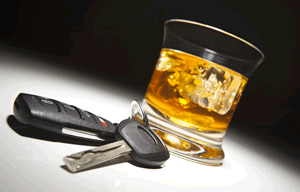DUI Charges
DUI Arrest
Charges for drunk driving, DUI, or DWI are very serious and should be handled with by a lawyer who specializes in DUI. The penalties and consequences of a DUI arrest go above and beyond the simply driving under the influence. The severity of the charge differs depending on your blood alcohol content and if there was property damage or injury as a result of the DUI.
Most Common DUI Charges include:
- Misdemeanor DUI
- Felony DUI
- Vehicular Manslaughter
The lines between what constitutes misdemeanor and felony charges will vary from state to state and most First Offenses will be considered a Class 1 Misdemeanor, or the most serious of the misdemeanors. In some states even a 2nd or 3rd DUI arrest may still be considered misdemeanors, though the penalties will go up with each DUI conviction.
However, you will be automatically charged with a felony if a state-mandated number of DUIs are committed within a set timeframe, like 3 in a 10 year period. If the DUI involves injury or death, the charge is almost always a felony. In some states under certain circumstances, it's possible for the charges to include both misdemeanor and felony charges.
Breathalyzer
Determination of a DUI or DWI charge can be made using a field sobriety test, blood test, or a breathalyzer. In many states, refusal to take a breathalyzer test means the jury can be instructed to draw a permissible inference of "consciousness of guilt." Many states also operate under "implied consent," meaning that anyone issued a driver's license in the state agrees to submit to a test of his or her breath, blood, or urine when requested by a law enforcement officer. Failure to submit to a breathalyzer test may result in automatic suspension of his or her driver's license even if not convicted of drunk driving. Failure to submit to such a test may also serve to enhance the penalties for a drunk driving conviction. In drunk driving cases in Massachusetts and Delaware, if the defendant refuses the breathalyzer there can be no mention of the test during the trial.
DUI and Injury
As stated above, any DUI arrest involving injury or death will almost always result in a DUI felony charge. Regardless of criminal charges, however, if there is injury involved, any damage caused by a DUI can also be open to a civil suit. The victim will be able to attempt to recover damages and/or medical expenses whether or not the DUI resulted in any other consequences.
Your DUI attorney can evaluate your case to see if it will be charged as a misdemeanor or felony and how to best proceed with your case.
DUI Term of the Day
Minimum drinking age
In this act the U.S. Government required all states to raise their minimum age for the purchase and public possession of alcohol to 21 years of age.Category: DUI and DWI
Latest DUI Question
Can I be a Police Officer and have a DUI?
Understanding if you can be a Police Officer and also have a DUI.Category: DUI and DWI
Share this page with a friend
Tweet

